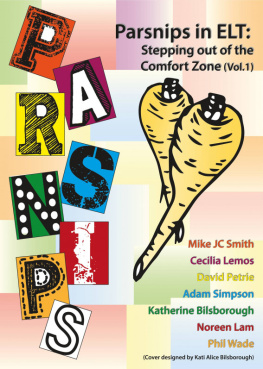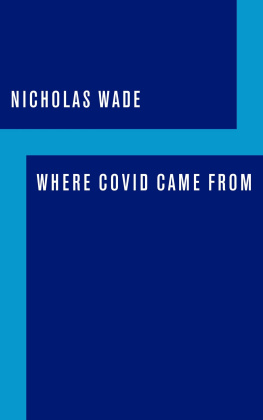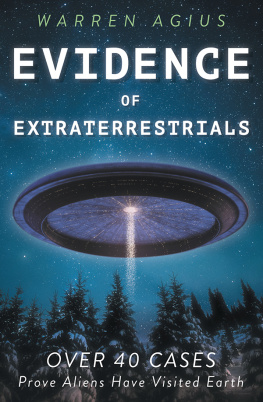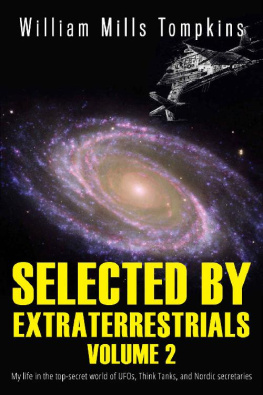Wade Roush - Extraterrestrials
Here you can read online Wade Roush - Extraterrestrials full text of the book (entire story) in english for free. Download pdf and epub, get meaning, cover and reviews about this ebook. year: 2020, publisher: The MIT Press, genre: Romance novel. Description of the work, (preface) as well as reviews are available. Best literature library LitArk.com created for fans of good reading and offers a wide selection of genres:
Romance novel
Science fiction
Adventure
Detective
Science
History
Home and family
Prose
Art
Politics
Computer
Non-fiction
Religion
Business
Children
Humor
Choose a favorite category and find really read worthwhile books. Enjoy immersion in the world of imagination, feel the emotions of the characters or learn something new for yourself, make an fascinating discovery.

- Book:Extraterrestrials
- Author:
- Publisher:The MIT Press
- Genre:
- Year:2020
- Rating:4 / 5
- Favourites:Add to favourites
- Your mark:
- 80
- 1
- 2
- 3
- 4
- 5
Extraterrestrials: summary, description and annotation
We offer to read an annotation, description, summary or preface (depends on what the author of the book "Extraterrestrials" wrote himself). If you haven't found the necessary information about the book — write in the comments, we will try to find it.
Extraterrestrials — read online for free the complete book (whole text) full work
Below is the text of the book, divided by pages. System saving the place of the last page read, allows you to conveniently read the book "Extraterrestrials" online for free, without having to search again every time where you left off. Put a bookmark, and you can go to the page where you finished reading at any time.
Font size:
Interval:
Bookmark:
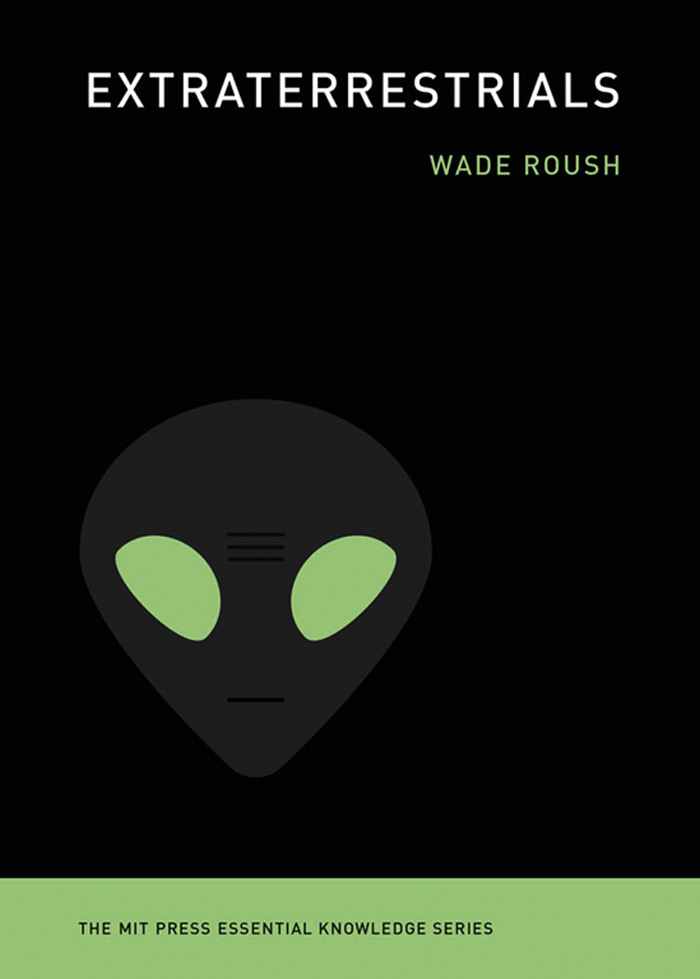
The MIT Press Essential Knowledge Series
A complete list of the titles in this series appears at the back of this book.
Wade Roush
The MIT Press | Cambridge, Massachusetts | London, England
2020 Massachusetts Institute of Technology
All rights reserved. No part of this book may be reproduced in any form by any electronic or mechanical means (including photocopying, recording, or information storage and retrieval) without permission in writing from the publisher.
This book was set in Chaparral Pro by Toppan Best-set Premedia Limited.
Library of Congress Cataloging-in-Publication Data
Names: Roush, Wade, author.
Title: Extraterrestrials / Wade Roush.
Other titles: MIT Press essential knowledge series.
Description: Cambridge, Massachusetts : The MIT Press, [2020] | Series:
The MIT Press essential knowledge series | Includes bibliographical
references and index.
Identifiers: LCCN 2019024257 | ISBN 9780262538435 (paperback) | ISBN
9780262357593 (ebook)
Subjects: LCSH: Search for Extraterrestrial Intelligence (Study group :
U.S.) | Life on other planets. | Extraterrestrial beings.
Classification: LCC QB54 .R597 2020 | DDC 576.8/39dc23
LC record available at https://lccn.loc.gov/2019024257
10 9 8 7 6 5 4 3 2 1
The MIT Press Essential Knowledge series offers accessible, concise, beautifully produced pocket-size books on topics of current interest. Written by leading thinkers, the books in this series deliver expert overviews of subjects that range from the cultural and the historical to the scientific and the technical.
In todays era of instant information gratification, we have ready access to opinions, rationalizations, and superficial descriptions. Much harder to come by is the foundational knowledge that informs a principled understanding of the world. Essential Knowledge books fill that need. Synthesizing specialized subject matter for nonspecialists and engaging critical topics through fundamentals, each of these compact volumes offers readers a point of access to complex ideas.
Bruce Tidor
Professor of Biological Engineering and Computer Science
Massachusetts Institute of Technology
We live in the middle of a great unfinished story: the tale of humanitys emergence as a planet-dominating but homebound species and our potential transformation into a spacefaring, multiplanetary one.
We know how the story began, as we left the treetops, spread across the continents, and developed language, farming, written culture, and eventually science.
We know where the story stands now. In the current century, well be busy confronting the multiple existential challenges we have created for ourselves. But if we can master the forces of global-scale politics and industrial-scale technology, own up to our responsibility to manage Earths climate and ecosystems, and systematize our exploration of the other planetsall big ifs, admittedlythen there is not much else to stop us from expanding outward into the galaxy.
What we dont know is which direction the story will go after that. There are only two possibilities. Either we will remain alone in our explorations, or we will find that we have company.
Its conceivable that we are the first intelligent beings in the galaxy ever to consider leaving their home planet. In this scenario, well learn that the rest of the Milky Way is home to microbes and little more. Everywhere we venture, we will find lonely and uninhabited spaces, waiting to be colonizedby us or by our artificially intelligent machines.
Or perhaps we will run into other people as we go, as we always have before. There might be a whole bustling, galaxy-spanning league of planets waiting to welcome us or perhaps a few scattered but nonetheless sociable civilizations.
If and when we do make contact with other cultures, they are likely to be far older than ours, and the interaction is likely to transform us in ways that are hard to imagine now. The astronomer Paul Davies, who chairs the Search for Extraterrestrial Intelligence Post-Detection Task Group, believes contact with extraterrestrials would have a greater impact on humanity than the discoveries of Copernicus, Darwin and Einstein put together.
But the suspense in this matter may last for a long time. If we are not the first galactic explorers, we might learn this tomorrow or a hundred years from now or a thousand. If the galaxy seems empty, we will have to live with our solitude forever, never knowing whether we are the first (or the last) or whether there are others, but they remain too remote for us to find.
To me, whats interesting is that weve grown up enough as a species to know how to ask the question Are we alone? but not enough to know how to answer it.
We have been listening for radio signals of intelligent extraterrestrial origin for 60 years, and we have not heard a peep. The aliens might be hiding, or they might be too far away, or they might be communicating in ways we cant yet detectbut the most conservative guess right now is that they just arent there.
But thats only a surmise. We dont know how life arises or exactly how many worlds are suitable for it. We dont know how often simple organisms evolve all the way to the point of sentience and tool making. We dont know how other cultures might try to communicate with us. So far we have chosen to search for their signals on radio and optical frequencies, but the use of those methods in particular, too, is just a guess. Our search may be doomed to futility, or we might just be getting started.
The question of the existence of extraterrestrials is not just one of the most persistent puzzles in science; it is the biggest blank in our own story arc as a species. And it is marvelously, tantalizingly unsettled.
Thats what this book is about: the question itself, why it remains unanswered, and how scientists are trying to answer it.
The question has been nagging at my own mind for almost as long as I can remember. I was born in the late 1960s and devoured pop-culture artifacts such as Stanley Kubricks 2001: A Space Odyssey (1968) and Steven Spielbergs Close Encounters of the Third Kind (1977) and E.T.: The Extra-Terrestrial (1982). The idea that space aliens might exist and that it might be our destiny to meet them had long since become part of the zeitgeist.
As we will see in chapter 1, the concept goes back to the ancient Greeks and entered firmly into popular lore in the nineteenth and early twentieth centuries with the help of scientists such as the Mars-obsessed astronomer Percival Lowell and science-fiction writers such as H. G. Wells.
But, for me, it was the work of the renowned astronomer, science communicator, and TV personality Carl Sagan that brought the idea into sharp focus. Sagan was part of a small group of researchers who had been working since the early 1960s to make the search for extraterrestrial intelligence, or SETI, into a respectable scientific discipline. He wrote at length about extraterrestrial life in his book The Cosmic Connection (1973), then led the production of the Voyager Interstellar Record. Encoded with audio and photos, the record went into deep space in 1977 aboard the Voyager 1 and Voyager 2 probes as a kind of aspirational message in a bottle. But perhaps most importantly, Sagan electrified my whole generation of budding science geeks with his public-television series
Next pageFont size:
Interval:
Bookmark:
Similar books «Extraterrestrials»
Look at similar books to Extraterrestrials. We have selected literature similar in name and meaning in the hope of providing readers with more options to find new, interesting, not yet read works.
Discussion, reviews of the book Extraterrestrials and just readers' own opinions. Leave your comments, write what you think about the work, its meaning or the main characters. Specify what exactly you liked and what you didn't like, and why you think so.


